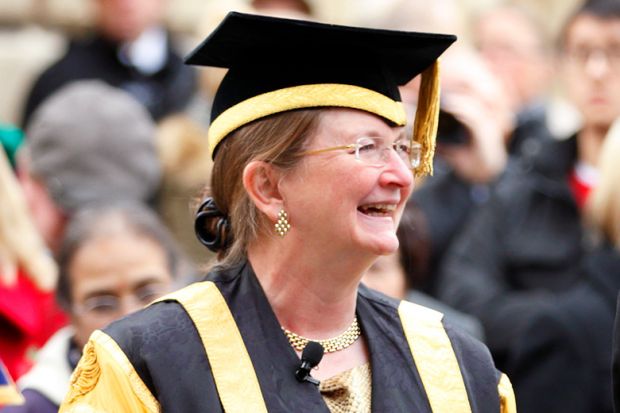More university vice-chancellors will soon face a barrage of negative publicity as details of their pay and perks are released over the coming months, sector experts have warned.
Last week it emerged that Sir Christopher Snowden, vice-chancellor of the University of Southampton, became one of the UK's most highly-paid higher education leaders in 2016-17, on a pay package totalling £433,000. This is in comparison with the £352,000 he was paid the previous year for the 10 months he was employed, and comes after the institution announced plans to axe 75 academic jobs.
Previously, Dame Glynis Breakwell, the departing vice-chancellor of the University of Bath already under fire over her £468,000 salary package, faced further criticism after it was revealed that she would continue to receive her full wage until February 2019, initially as vice-chancellor until August, and then for six months on a paid sabbatical.
“This is just the start,” predicted Andrew Corbett-Nolan, chief executive at the Good Governance Institute, which has advised more than a dozen universities on governance – an area on which Bath was recently criticised by the sector’s main watchdog, the Higher Education Funding Council for England.
“Universities have to be sensitive to the public mood [on executive pay] and not all of them are in tune with the current mood,” added Mr Corbett-Nolan, who believed that “all the other things that constitute vice-chancellors’ pay packages” would come under particular scrutiny when institutional accounts are released in coming months.
“Having the right pay for the job is fine, but when you get into grace-and-favour houses and other perks, these belong to a different decade – and that goes for all sectors, not just higher education,” he continued.
Michael Shattock, visiting professor of higher education at UCL Institute of Education, said that the manner of Dame Glynis’ departure would likely lead to another Hefce investigation – with the matter already reported by former education minister Lord Adonis.
“It’s a certainty that Hefce will conduct some kind of review into what appears to be a redundancy payment,” said Professor Shattock, who cited Hefce’s warning in June that enhanced severance packages “should not as a rule be provided out of public funds”.
Professor Shattock, who researches university governance, said that Dame Glynis, who has led Bath since 2001, was an example of the danger of staying in the job for too long.
“If you stay for that long and the remuneration committee thinks it should give you a little something extra every year, 17 years of increments start to add up to a very hefty salary,” said Professor Shattock.
Long-term university leaders also needed to have a similarly experienced registrar or equivalent who could report impartially to the chair of council to avoid “groupthink”, added Professor Shattock, who believed that the “reasonable” success of “middle-ranking” Bath in recent years had been “exaggerated”.
Michael Carley, president of Bath’s University and College Union branch, said that Dame Glynis’ sabbatical raised further questions about her treatment.
Dr Carley said it “is clear that this is a pay-off in all but name”.
“The point of a sabbatical is that an academic does somewhere else what they couldn’t do in Bath, and then brings home the benefits,” he added. “A sabbatical for someone on the way out the door is not a sabbatical, it is a pay-off.”
That also held true for the £31,000 car loan that will be written off when Dame Glynis leaves the university, said Dr Carley. “A loan which is not repayable is not a loan, it is a gift,” he said.
Register to continue
Why register?
- Registration is free and only takes a moment
- Once registered, you can read 3 articles a month
- Sign up for our newsletter
Subscribe
Or subscribe for unlimited access to:
- Unlimited access to news, views, insights & reviews
- Digital editions
- Digital access to THE’s university and college rankings analysis
Already registered or a current subscriber?







